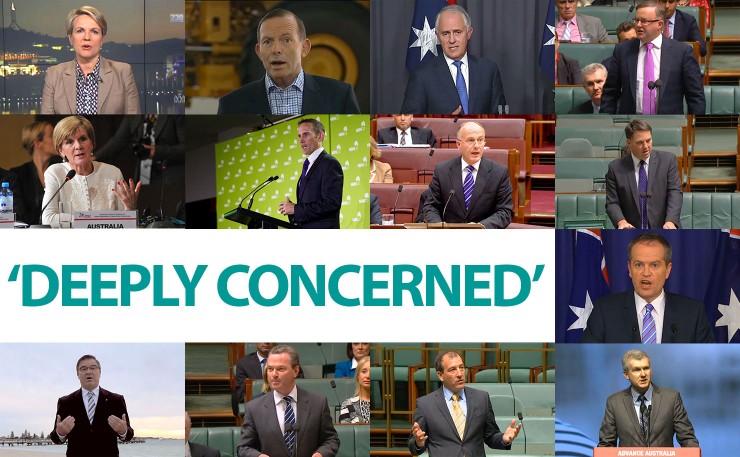When Australian politicians from either of the two major parties say they’re ‘deeply concerned’ about something, you should probably start preparing to be ‘deeply appalled’ by their inaction or their betrayal. Chris Graham reports.
It all started with Tanya Plibersek. A fortnight ago, the deputy leader of the Labor Party emerged on ABC Radio National, to face journalist Fran Kelly.
Kelly was initially interested in Plibersek’s views about the government announcement Australia would seek a new seat on the UN Security Council. But, of course, with Plibersek on the line, Kelly took the opportunity to also grill Plibersek about the other issues of the day, including fresh reports female asylum seekers had been raped on Nauru.
Specifically, Kelly wanted to know whether Plibersek supported vulnerable women being left stranded in detention.
Plibersek dodged the question not once, but twice, but not before noting that she was “deeply concerned” about the issue. You can hear the interview in full below.
At New Matilda, it got us thinking… what does ‘deeply concerned’ actually mean to Australian politicians? Can you actually be ‘deeply concerned’ about something, and still embrace party policy? Or is ‘deeply concerned’ really just code for something else?
With that in mind, we went hunting for other times Australian politicians said they were ‘deeply concerned’ about something, but either dodged the issue, or did something that seems to fly in the face of their ‘deep concern’.
We’ve restricted our guide to 21 occasions, because, quite frankly, it happens so often that there’s simply not enough memory in the New Matilda database to record it all, without crashing our system.
So strap yourself in… this is a pretty ugly ride.
Blackfellas
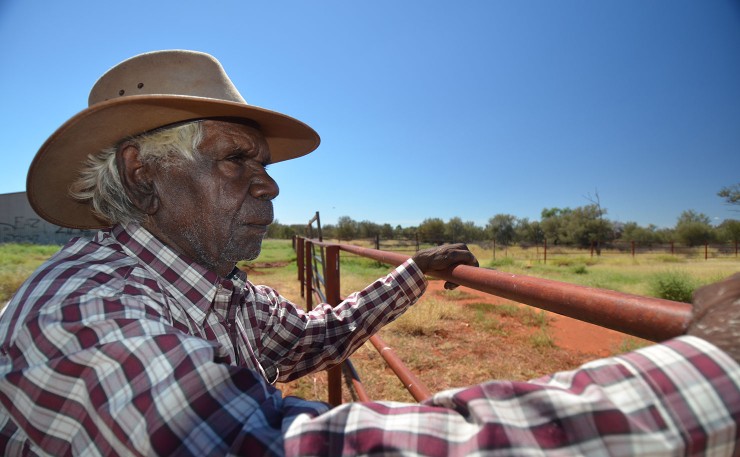
1
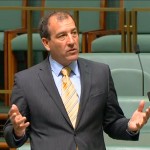 In 2007, Mal Brough was “deeply concerned” about sexual violence in remote Aboriginal communities and the apparent ‘failure’ of the NT government to take seriously a report into the problem. But not so ‘deeply concerned’ that his government didn’t do precisely the same thing a few years earlier.
In 2007, Mal Brough was “deeply concerned” about sexual violence in remote Aboriginal communities and the apparent ‘failure’ of the NT government to take seriously a report into the problem. But not so ‘deeply concerned’ that his government didn’t do precisely the same thing a few years earlier.
While Minister for Indigenous Affairs, Mal Brough came out swinging amid allegations that the NT Government was ignoring child molestation in Aboriginal communities.
Here he is, quoted in The Age: “Mr Brough says he’s deeply concerned by the Northern Territory government’s failure to take immediate action over a damning inquiry exposing widespread child sex abuse in Aboriginal communities. ‘What concerns me greatly is that if we had discovered a paedophile in Dickson (in Canberra) there would have been a task force set up, there would have been community action immediately. The reality is the Northern Territory government has had this completed report for eight weeks, and we’ve seen no action.’”
The report Brough is referring to was Little Children Are Sacred, the result of an NT government inquiry which was sparked by false reporting by ABC television’s Lateline program.
But the ever-excitable Brough was strangely silent when, in 2002, it emerged that the Howard government had sat on the ‘Memmot report’ for 18 months, a study which made precisely the same sorts of claims about violence and paedophilia in Aboriginal communities.
Asylum Seekers
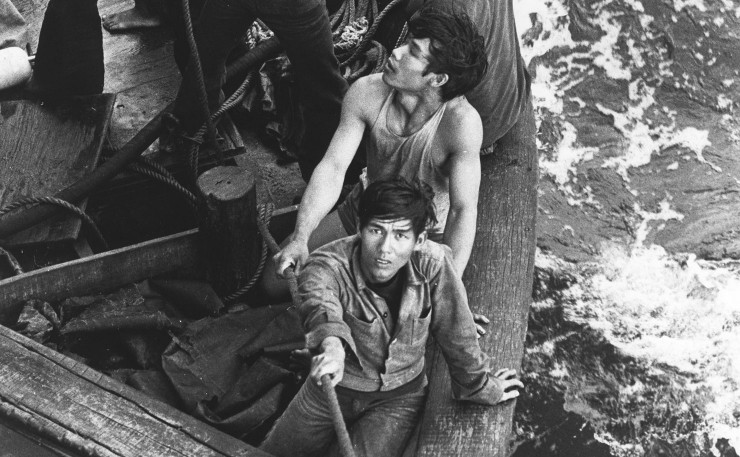
2
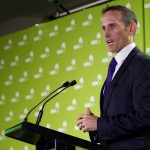
In 2013, shadow assistant treasurer Andrew Leigh was ‘deeply concerned’ about the impact of turning back boatloads of asylum seekers. But not so ‘deeply concerned’ Labor shouldn’t do it as well.
Here’s Andrew Leigh in July 2013 – while in government – mocking the Liberal Party’s policy of turning asylum seeker boats around at sea: “We know that the Coalition’s wacky ‘turn back the boats’ policy is a policy that could easily lead to conflict with Indonesia. So there’s real risks with Tony Abbott, and there’s strength of renewal and also continuity in the Labor front bench.”
And here he is in Opposition in October 2014, ‘deeply concerned’ not once, but twice: “Our policy (opposing) turnbacks hasn’t changed. We do remain deeply concerned about its diplomatic impact. We’ve always supported policies which prevent people drowning at sea. We remain committed to policies that save lives, but deeply concerned about a policy which is doing harm to our diplomatic relationship with Indonesia.”
And now here’s Leigh in July 2015, explaining to Sky News’ Kieran Gilbert why the Labor Party thinks boat turnbacks is a good idea.
GILBERT: What’s your view on [boat turnbacks]?
LEIGH: Well, it’s our party policy and I think it gives us a firm policy to stop people drowning en route to Australia. You saw Tony Burke in his speech talk about the 33 asylum seekers who drowned on the way to Australia, including a ten-month-old child. We can’t have those drownings continue….”
3

In 2015, Andrew Leigh was also “deeply concerned” about the use of taxpayer money to pay people smugglers. But not so ‘deeply concerned’ that Labor shouldn’t also do it.
Here’s Andrew Leigh speaking to Fairfax in July this year about claims the Abbott Government was paying cash to people smugglers to encourage them to turn around.
“Like many taxpayers, we are deeply concerned that the Government seems to have all but admitted that it paid people smugglers on the waters to turn the boats back. That’s got serious implications for the sustainability for anti-people smuggling efforts as well as, in my view, being a very poor use of Australian taxpayer dollars,” Leigh said.
And here’s Andrew Leigh, also in July, when he was asked by Sky News about whether or not Labor, during the Rudd years, also paid cash to people smugglers.
“It would not be responsible for me to go into details.”
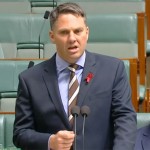 4 In 2014, Labor’s spokesman on immigration, Richard Marles was “deeply concerned” about violence on Manus Island, in particular that which claimed the life of a young Iranian. But not so ‘deeply concerned’ that he felt any apparent shame at his government’s role in it all.
4 In 2014, Labor’s spokesman on immigration, Richard Marles was “deeply concerned” about violence on Manus Island, in particular that which claimed the life of a young Iranian. But not so ‘deeply concerned’ that he felt any apparent shame at his government’s role in it all.
In February 2014, Richard Marles joined the chorus of condemnation of the violence that exploded on Manus Island, resulting in the death of Reza Barati at the hands of the very people being paid by Australia to protect him: “What we have seen at Manus Island over the last week is deeply concerning. We’ve had two serious incidents in two days. This is the third incident since Tony Abbott came to power.”
Manus Island, of course, was re-opened by the Labor Gillard government in November 2012 (of which Marles was a member), and offshore processing was re-affirmed as Labor’s official policy at its National Conference in July this year. The kicker is that Reza Barati came by boat to Australia in July 2013, five days after Labor announced it’s ‘PNG solution’. In other words, it was Labor who actually sent Barati to the hell-hole that is Manus Island.
And a bonus point for Marles: Here’s a link to a press conference in March 2014, in which he’s “deeply concerned” three times – twice about Manus Island and once about 457 visas.
 5 In 2015, Richard Marles was also “deeply concerned” more generally at the conditions asylum seekers were forced to endure on Manus Island and Nauru. But not so ‘deeply concerned’ that the centres should be shut down.
5 In 2015, Richard Marles was also “deeply concerned” more generally at the conditions asylum seekers were forced to endure on Manus Island and Nauru. But not so ‘deeply concerned’ that the centres should be shut down.
Last month, when Malcolm Turnbull won the Liberal Party leadership spill, Turnbull told media he was “concerned” about conditions within the offshore processing network. Richard Marles joined the faux pity party, saying Labor had long been calling on the Abbott Government to improve the way the detention centres on Manus Island and Nauru were run: “What I can tell you from the point of view of Labor is that this is a difficult issue, we are deeply concerned about the fate of those people on Manus and Nauru, we’re also deeply concerned to make sure that we don’t see any policy changes which result in people dying on our borders again.”
Marles final position though was that the facilities should remain open… the ones established while he was in government.
Racism

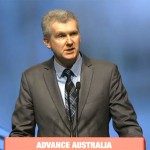 6 In 2014, Tony Burke was “deeply, deeply concerned” at the Abbott Government’s proposed changes to section 18c of the Racial Discrimination Act. But not so ‘deeply, deeply concerned’ that his party shouldn’t suspend the Act altogether when the political winds suited.
6 In 2014, Tony Burke was “deeply, deeply concerned” at the Abbott Government’s proposed changes to section 18c of the Racial Discrimination Act. But not so ‘deeply, deeply concerned’ that his party shouldn’t suspend the Act altogether when the political winds suited.
Tony Burke has an unfortunate history of faux outrage blowing up in his face. Who could forget his vigorous pursuit of speaker Bronwyn Bishop’s extravagant use of her parliamentary ‘entitlements’, only for it to emerge that he flew his entire family, business class, for a holiday to Uluru at taxpayer’s expense ($12,000 worth).
Turns out Burke had the same luck on George Brandis’ proposal to amend the Racial Discrimination Act (RDA). In March 2014 Burke opined the mooted changes were “deeply, deeply concerning, especially for our local area where we are one of the most multiculturally diverse in the country”.
Burke apparently wasn’t so ‘deeply deeply concerned’ about the passage of the Northern Territory intervention legislation in 2007, voting for it despite the fact it required the complete suspension of the RDA to pass.
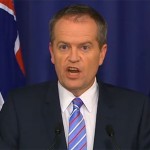 7 In 2015, Labor leader Bill Shorten was “deeply concerned” about racism being ‘unleashed’ in the community. But not so appalled that he shouldn’t engage in a bit of bi-partisan ‘brown bashing’ himself.
7 In 2015, Labor leader Bill Shorten was “deeply concerned” about racism being ‘unleashed’ in the community. But not so appalled that he shouldn’t engage in a bit of bi-partisan ‘brown bashing’ himself.
In July this year, Shorten was asked about violence at Reclaim Australia rallies: “I’m deeply concerned if we’re unleashing racism in our community…” he told media.
Shorten must have been referring to ‘non-government, unofficial and unsanctioned racism’, because here’s his response to media questions one month later, when confronted with the Melbourne Border Force farce (Immigration officials planned to stop people on the street – read, ‘people of colour’ – and demand their visa details).
“Labor obviously believes in targeting crime. I do hope that any of these actions are done to try and protect Australian laws, to make sure that people are not overstaying their visas, to make sure that temporary guest workers are not being exploited. Labor’s said for a while we’re concerned that under this government our employment visas of temporary workers are becoming too slackly regulated. To that extent we’re interested in what’s happening.”
A few hours later, Shorten described the strategy as ridiculous, when it became apparent the Abbott Government was backing down.
As a bonus point, Shorten also voted with the Rudd government to extend the Northern Territory intervention – described by the United Nations as “racist” – for 10 years.
Palestinians

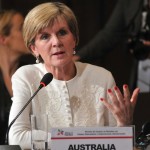 8 In 2014, Foreign minister Julie Bishop was “deeply concerned” about Israel’s treatment of Palestinian children. But not so ‘deeply concerned’ that Palestine’s aspirations in the United Nations shouldn’t be frustrated.
8 In 2014, Foreign minister Julie Bishop was “deeply concerned” about Israel’s treatment of Palestinian children. But not so ‘deeply concerned’ that Palestine’s aspirations in the United Nations shouldn’t be frustrated.
Here’s Bishop in February 2014 talking to Fairfax media: “I am deeply concerned by allegations of the mistreatment of Palestinian children. The Australian government welcomes Israel’s ongoing efforts to address these issues… [and]regularly raises human rights issues in appropriate fora, including the UN Human Rights Council.”
Later that year, Bishop used Australia’s temporary seat on the UN Security Council which called for an end to Israel’s occupation of Palestine.
The even deeper irony is that while in Opposition, Bishop opposed Labor’s successful push for the temporary seat on the UN Security Council, describing it as a waste of time and money and noting her party had “been concerned in relation to the bid for 2013/2014 from the outset.”
A fortnight ago, of course, Bishop unveiled Australia’s plans to seek another temporary seat on the Security Council in 2029, and a spot on the UN Human Rights Council in 2018.
Peter Greste
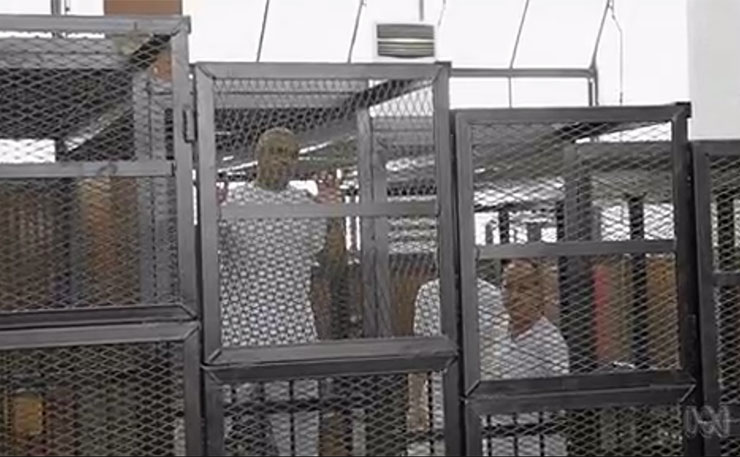
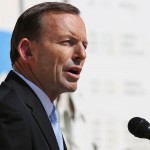 9 In 2014, Tony Abbott was “deeply concerned” at the jailing of Australian journalist Peter Greste. But not so ‘deeply concerned’ that he shouldn’t congratulate the Egyptian military for their 2013 bloody coup and subsequent crackdown on the Muslim Brotherhood – the organisation Greste was jailed for reporting on.
9 In 2014, Tony Abbott was “deeply concerned” at the jailing of Australian journalist Peter Greste. But not so ‘deeply concerned’ that he shouldn’t congratulate the Egyptian military for their 2013 bloody coup and subsequent crackdown on the Muslim Brotherhood – the organisation Greste was jailed for reporting on.
Here’s Abbott in Fairfax media in March 2014, on the fate of Peter Greste: “The Prime Minister is “deeply concerned” about Australian journalist Peter Greste, now jailed in Egypt, and the government has made representations for his release, a spokesman said, as images of him in a courtroom cage shocked his parents and the world.”
And here’s Abbott on the ABC after Greste was jailed, praising Egypt for its crackdown: “I discussed a number of subjects with the President of Egypt including the deteriorating security situation in the Middle East and I congratulated him on the work that the new Government of Egypt had done to crack down on the Muslim Brotherhood, which is – if you like – the spiritual author and father of some of these even more radical groups.”
Bias by government officials
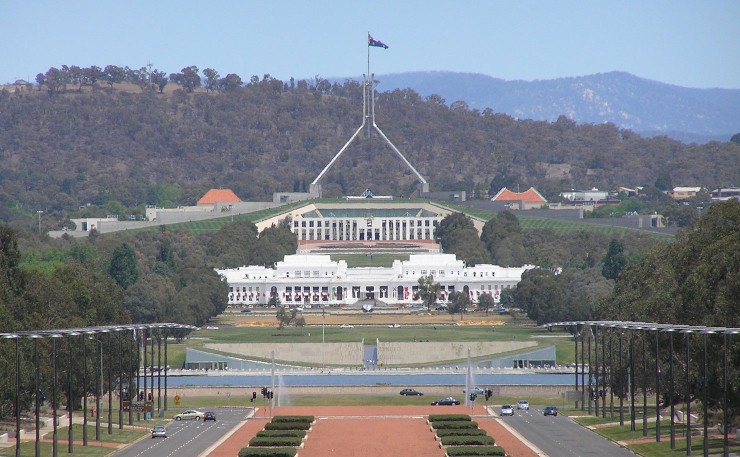

10 In 2011, Julie Bishop was “deeply concerned” about Commonwealth appointed officials showing bias. But she was not so ‘deeply concerned’ when it happened on her side of politics.
In October 2011, news broke that Commonwealth Ombudsman Allan Asher had fed questions to the Greens for an upcoming grilling of the Labor Gillard government at a Senate estimates hearing.
Asked by ABC’s Chris Uhlmann if she thought Asher “should be considering his position”, Bishop replied: “I am deeply concerned by this.”
And now here’s Bishop in August 2015, on whether or not Deyson Heydon, the Royal Commissioner investigating trade union corruption, should stand down after accepting an invitation to speak at a Liberal Party fundraiser.
“I welcome Commissioner Dyson Heydon’s decision to remain. This question of bias was never appropriate.”
Corruption and inducements

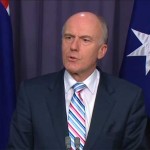
11 In 2014, former Minister for Employment Eric Abetz was “deeply concerned” by corruption and brown paper bags. But not so ‘deeply concerned’ that there should be a clampdown on all of it.
Here’s Abetz in February 2014 being “deeply concerned” about transparency and the rule of law where they relate to unions: “Anyone who believes in the rule of law should be deeply concerned that one part of Australian society, namely building sites, are in many respects unpoliced.”
And here’s The Saturday Paper fondly recalling Abetz’ time in the Howard days, when remarking on the transparency of political donations: “Back when the Howard government was amending the electoral act to increase the threshold for (political) declarations, the responsible minister, Senator Eric Abetz, was famously quoted saying he looked forward to “a return to the good old days when people used to donate to the Liberal Party via lawyers’ trust accounts”.
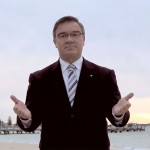 12 In 2014, Labor’s Gary Gray was “deeply concerned” that the Liberals were acting corruptly in awarding ‘jobs for the boys’. But not so ‘deeply concerned’ that he should take up the broader fight against cronyism.
12 In 2014, Labor’s Gary Gray was “deeply concerned” that the Liberals were acting corruptly in awarding ‘jobs for the boys’. But not so ‘deeply concerned’ that he should take up the broader fight against cronyism.
Here’s Gary Gray in December 2014, issuing a press release condemning the Abbott Government’s decision to appoint John Lloyd as the new Australian Public Service Commissioner.
“The Australian Public Service Commissioner plays a critical role in supporting and leading the hard-working men and women of the Australian Public Service, who are vital to the operation of the Australian Government and the delivery of services to the Australian people,” Gray said. “It is deeply concerning that the Abbott Government has decided to appoint a person with no history of representing employees or the public sector.”
The general thesis of Gray’s ‘deep concern’ was that Lloyd was too close to the Liberal Party.
And here’s Gray six months earlier, when asked by The Saturday Paper if there was a need for a federal corruption watchdog to tackle dirty political party donations: “No, I do not believe a federal ICAC is required.”
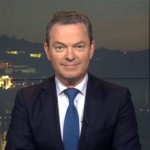 13 In 2015, Education Minister Christopher Pyne was “deeply concerned” about inducements being offered around employment conditions. But not so ‘deeply concerned’ that it prevented him from offering inducements of his own.
13 In 2015, Education Minister Christopher Pyne was “deeply concerned” about inducements being offered around employment conditions. But not so ‘deeply concerned’ that it prevented him from offering inducements of his own.
Here’s Christopher Pyne getting all hot and bothered in Parliament earlier this year about corruption and inducements linked to trade unions: “The government is… deeply concerned about the most recent revelations in the trade union royal commission. The House will remember the case of Clean Event…. [which]provided $75,000 to the Australian Workers Union in exchange for selling workers down the river to the tune of $6 million in labour costs that they would otherwise have received….”
And here’s Pyne in September 2014 when asked by media whether former Peter Slipper staffer James Ashby was “mistaken” in his belief that if he dished up dirt on Slipper, he would be provided a lawyer and a new job.
“Certainly my intention was never to lead him to believe a job would be provided,” Pyne told media. This video of Pyne dodging that central question is quite entertaining (skip forward to four minutes if you’re busy).
The Australian Federal Police are still investigating the matter, although it’s understood Pyne is in the clear (Mal Brough, not so much).
Parliamentary Processes

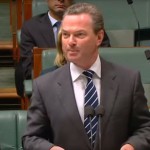 14 In 2012, Christopher Pyne was “deeply concerned” about bills being rushed through parliament by the Labor Party. But not so ‘deeply concerned’ that he doesn’t do the same thing now he’s in office.
14 In 2012, Christopher Pyne was “deeply concerned” about bills being rushed through parliament by the Labor Party. But not so ‘deeply concerned’ that he doesn’t do the same thing now he’s in office.
In October 2012, while in Opposition, Pyne used a ‘Statement of Indulgence’ (that’s literally what it’s called) to whine that the Gillard government was showing indecent haste in trying to push through legislation.
“We are getting bills the night before we are expected to pass them in the House of Representatives. It is a matter I am deeply concerned about,” Pyne complained.
In June this year of course, Pyne, as Leader of the House, joined forces with Labor – to the disgust of cross-benchers – to rush legislation through the parliament to try and head off what was likely to be a successful High Court challenge to the legality of offshore detention.
Job cuts
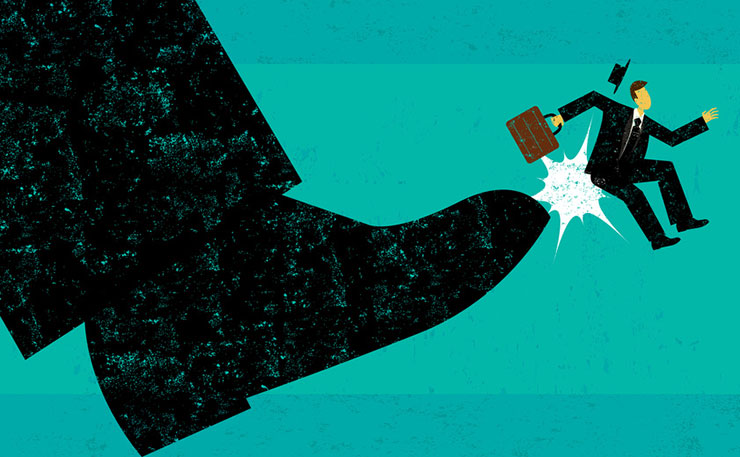
 15 In 2014, Christopher Pyne was “deeply disappointed” at the announcement by the ABC that it would be shedding jobs in Adelaide. Granted ‘deeply disappointed’ is not quite ‘deeply concerned’, but we’re making an exception in this case, given the staggering hypocrisy of it all.
15 In 2014, Christopher Pyne was “deeply disappointed” at the announcement by the ABC that it would be shedding jobs in Adelaide. Granted ‘deeply disappointed’ is not quite ‘deeply concerned’, but we’re making an exception in this case, given the staggering hypocrisy of it all.
It was, of course, the Liberal opposition who promised in 2013 that if elected there would be “no cuts to the ABC or SBS”. A few months after being elected, the Abbott Government delivered five percent cuts to SBS and the ABC.
When the ABC announced later in 2014 that jobs in Adelaide would be shed as part of sweeping cuts across the organisation, South Australian-based Pyne was outraged.
Reported Fairfax: “Mr Pyne released a statement on Monday, saying he was “deeply disappointed” by the ABC’s decision in South Australia and would continue to lobby against it. ‘I am disgusted that the last production unit outside Sydney and Melbourne is now being closed.’”
Pyne was so disgusted, he even launched a petition which revealed his ‘concern’, albeit not ‘deep concern’.
“We, the undersigned, are concerned that ABC in South Australia is the last TV production unit outside of Sydney and Melbourne,” it read.
Pyne managed more signatures on his petition than most thought he would get. But that’s in large part because in order to leave a comment on the petition, you must first sign it. As it turned out, most only signed the petition so they could tell Pyne what they thought of him.
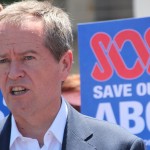
16 In 2012, Bill Shorten was “deeply concerned” about state government public service job cuts. But not so ‘deeply concerned’ that he would speak out against the practice from within his own party.
Bill Shorten has always been a ‘man of the workers’, and so here he is in October 2012, while Minister for Employment, going into bat for the men and women who were slaving away as public servants in state governments: “I am deeply concerned about recent Coalition state government announcements to cut tens of thousands of public sector jobs.”
Shorten came to parliament in the 2007 Rudd-slide in 2007… in which Kevin 07 promised to “take the meat axe” to the Australian public service.
The AFR reported at the time that the Rudd government shed around 4,000 jobs, and a parliamentary paper noted ministerial and opposition personal staff levels were cut by 30 per cent.
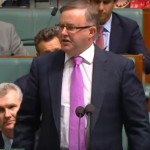 17 In 1996, Labor’s Anthony Albanese was also “deeply concerned” about cuts to the public service, during his maiden speech to parliament. But not so ‘deeply concerned’ when Rudd did it that he spoke out either.
17 In 1996, Labor’s Anthony Albanese was also “deeply concerned” about cuts to the public service, during his maiden speech to parliament. But not so ‘deeply concerned’ when Rudd did it that he spoke out either.
Here’s ‘Albo’ opposing savage Howard government public service cuts during his first speech to parliament in 1996: “I am… deeply concerned by the new government’s razor gang approach to the Commonwealth budget.”
And here’s Albanese a decade later, when the Rudd government started its own slashing and burning: “… (silence)…”
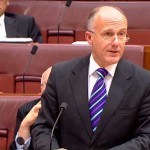 18 In 2014, Eric Abetz was “deeply concerned” about the “employability” of young people. But not so concerned his government didn’t try and cut off the dole for people under 25.
18 In 2014, Eric Abetz was “deeply concerned” about the “employability” of young people. But not so concerned his government didn’t try and cut off the dole for people under 25.
Here’s Abetz in August 2014, during a debate about the slashing of penalty rates for young workers: “Minister for Employment Eric Abetz told SmartCompany this morning the government is ‘deeply concerned for the employability of, in particular, young Australians’”.
And here’s Abetz being challenged on ABC Lateline about his government’s policy to prevent access to the dole for young people for six months: “Under the proposed changes, fit and healthy job seekers aged under 30 will have to sign up for 25 hours of work for the dole for at least half of each year. One study of the Work for the Dole scheme that operated under the former Howard government found it was the least effective way of making people more employable.
“Senator Abetz says he has seen the program work under the Howard government, and there is ‘anecdotal evidence’ of its success. ‘It’s all very well for people to throw stones. I simply ask what is the alternative, and regrettably nobody’s come up with a better alternative for that particular area within our suite of policies,’ he said.”
Lying Politicians
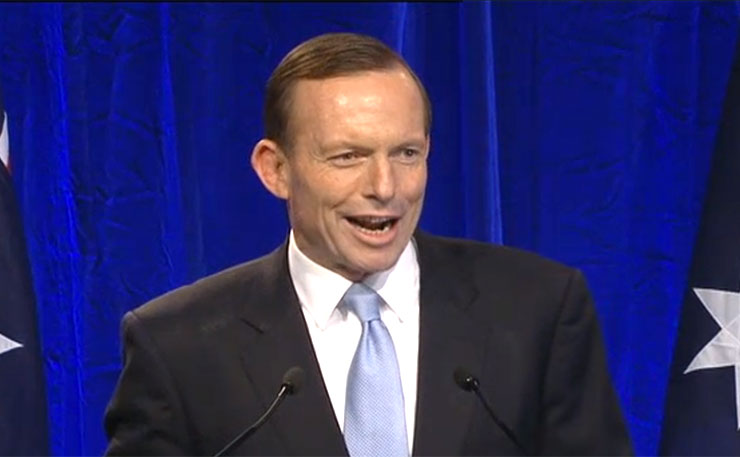
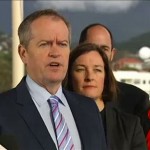 19 In 2014, Bill Shorten was “deeply concerned” the Abbott Government was elected on false promises. But apparently not so ‘deeply concerned’ that the Gillard government was as well.
19 In 2014, Bill Shorten was “deeply concerned” the Abbott Government was elected on false promises. But apparently not so ‘deeply concerned’ that the Gillard government was as well.
Here’s Shorten in January 2014 trying to ‘empathise with a nation’ during an interview on ABC radio in Brisbane: “I’m deeply concerned that Tony Abbott’s government is not the government that they promised they would be when they were in opposition,” he told host Tim Cox. Shorten’s main objection was broken Abbott Government promises, and saying one thing in opposition and doing another in government.
This is the same Shorten, of course, who rode into government on the coat tails of Julia Gillard, who promised voters there would be no carbon tax… which she promptly introduced once she was back in government. In Shorten’s defence, he later joined forces to remove Gillard and return Kevin Rudd to power, after having earlier joined forces with Gillard to remove Rudd.
Climate Change

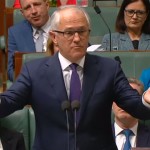 20 In 2009, Malcolm Turnbull was “deeply concerned” about the need for an emissions trading scheme. But not so ‘deeply concerned’ he’d make the public case for one now that he’s Prime Minister.
20 In 2009, Malcolm Turnbull was “deeply concerned” about the need for an emissions trading scheme. But not so ‘deeply concerned’ he’d make the public case for one now that he’s Prime Minister.
Of all the politicians in Australia, Malcolm Turnbull may go down in history as the one who most regrets the things he has said in the past. And that’s because he has a history of saying things passionately. Until the time is required for him to not be passionate. Which he can do as well.
After losing the Liberal leadership in 2009 based largely on his stance on climate change, here’s Turnbull telling The Age he would never give up his fight for an ETS.
”What should I do – go silent? None of my critics ever did. Not only am I an Australian citizen deeply concerned, but also an MP. My constituents expect me to be fearless and forthright, standing up for what things I believe in and, I’ve no doubt, the things the vast majority of my constituents believe in.”
Turnbull, of course, recently re-affirmed his opposition to an ETS, and claimed his government’s ‘Direct Action’ policy was working well. Which it isn’t.
National Security
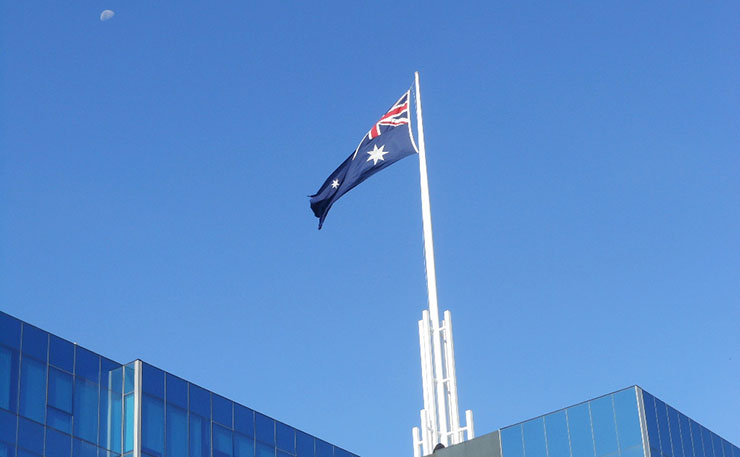
(IMAGE: Michael Coghlan, Flickr).
 21 In 2010, Foreign Minister Julie Bishop was “deeply concerned” about a secret Rudd government offer to send troops to help the United States fight terrorists. But not so ‘deeply concerned’ that her party shouldn’t do the same thing in government.
21 In 2010, Foreign Minister Julie Bishop was “deeply concerned” about a secret Rudd government offer to send troops to help the United States fight terrorists. But not so ‘deeply concerned’ that her party shouldn’t do the same thing in government.
Here’s Bishop in December 2010, being interviewed by ABC journalist Melissa Clark after it emerged Prime Minister Kevin Rudd had secretly committed Australia to joining the US in fighting ‘insurgents’ in foreign countries: “I find this deeply concerning…. The former Prime Minister appears to have given a private commitment to the United States that Australian forces would be deployed in Pakistan should international forces be invited in to assist with counter-insurgency. Does the Labor Party agree that Australian troops would be deployed in Pakistan if we were invited to do so?”
And here’s a Fairfax story from August 2015, revealing that while Bishop was Foreign Minister, the Abbott Government pushed the United States to invite it to join in air strikes in Syria, despite no mandate from the United Nations, and no request from the Syrian government.
* New Matilda is an independent Australian media outlet. We rely almost entirely on reader subscriptions for our survival. This sort of reporting takes intensive research – if you want to help keep us going, please consider subscribing here. We’ve got some great free gifts, and subs start from as little as $6 a month (that’s just $1.50 a week).
Donate To New Matilda
New Matilda is a small, independent media outlet. We survive through reader contributions, and never losing a lawsuit. If you got something from this article, giving something back helps us to continue speaking truth to power. Every little bit counts.

